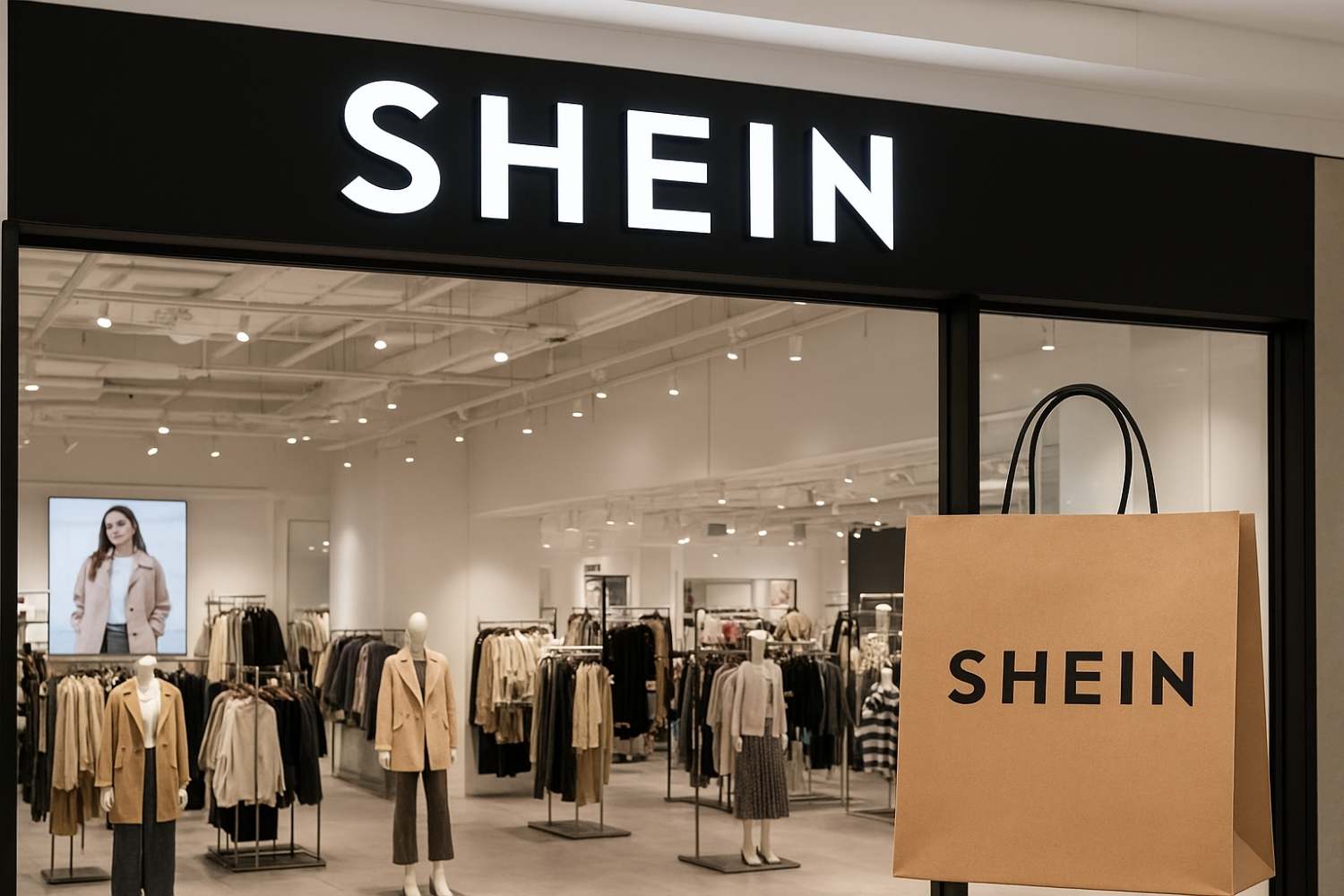Over 100,000 people have already signed the petition against Shein's opening at BHV Marais, the historic Parisian department store, denouncing the environmental, social, and economic impact of fast fashion

Table of contents
After conquering millions of consumers worldwide with its online portal offering dirt-cheap clothing and accessories, Shein, the Chinese fast fashion giant, is now targeting physical stores in France. The first opening, planned at BHV Marais in Paris, has triggered a powerful reaction, and more than 100,000 citizens have already signed the petition launched by the collective Une Autre Mode Est Possible (UAMEP) against the brand’s arrival in the department stores.
Shein’s expansion in France
The debut in physical stores is scheduled for November at BHV Marais, in the heart of Paris’s 4th arrondissement. Following that, Shein will open five more locations in the Galeries Lafayette stores in Dijon, Reims, Grenoble, Angers, and Limoges. The move was announced on October 1st and is the result of an agreement with Société des Grands Magasins (SGM), the company managing the stores involved.
The arrival of the Chinese colossus hasn’t gone unnoticed. Associations, brands, and institutions have promptly denounced the risk of amplifying a model already devastating for the environment and local production fabric.
Several partner brands of BHV have threatened to withdraw their products, while Galeries Lafayette has expressed its deep disagreement, emphasizing that Shein’s practices contradict the values of quality and sustainability that the group promotes.
The Caisse des Dépôts has reiterated that investments must respect criteria of responsibility and sustainability. Yann Rivoallan, president of the French Federation of Women’s Ready-to-Wear, further denounces that Shein has contributed to the loss of 15,000 jobs in France over the past three years, worsening the crisis of an already fragile sector.
From all this discontent, a petition promoted by the UAMEP collective was also born, emphasizing how Shein represents a global symbol of ultra-fast fashion, in stark contradiction with the climate, social, and economic commitments of the city of Paris.
What is being contested about Shein
The main points of contention against Shein concern aspects that are now well-known and objectively controversial about fast fashion:
- Environment: Shein publishes 10,000 new products every day, mostly in synthetic fibers, generating overproduction that fuels textile pollution in an industry already among the most polluting in the world
- Social aspects: irregular and inhumane working conditions, with shifts up to 15 hours a day for 28 days a month, total opacity of production chains, and violation of fundamental human rights
- Economy: unfair competition against creators, artisans, and local merchants who respect social and environmental standards. Shein has already been fined a record €40 million ($44 million) in France for misleading commercial practices
The brand’s arrival comes at a time when France and the European Union are strengthening laws against ultra-fast fashion, making it truly unacceptable to also open a physical store that promotes it.

What the petition demands
The petition demands the cancellation of Shein’s opening at BHV and in Galeries Lafayette; recognition by BHV and SGM that this choice contradicts the climate and social commitments of the city of Paris, immediate inspections by DGCCRF on Shein’s commercial practices with sanctions in case of proven violations, and finally greater support for those promoting circular fashion and creating local jobs while respecting human rights and protecting the environment.
Shein’s response
The brand claims it wants to “revitalize French city centers,” promising the creation of 200 jobs and defining itself as a diversification opportunity for department stores. SGM, the company managing BHV and some Galeries Lafayette, speaks of a “misunderstanding” and defends its freedom to offer consumers a range spanning from luxury to fast fashion.
Despite this, the brand remains one of the quintessential symbols of the throwaway model that pollutes, exploits, and fuels bulimic consumerism. Transferring this system from e-commerce to department store shelves means normalizing it in everyday life, when sustainable alternatives should be incentivized instead.
Source: Change.org
